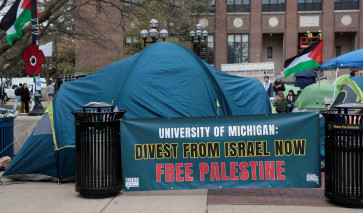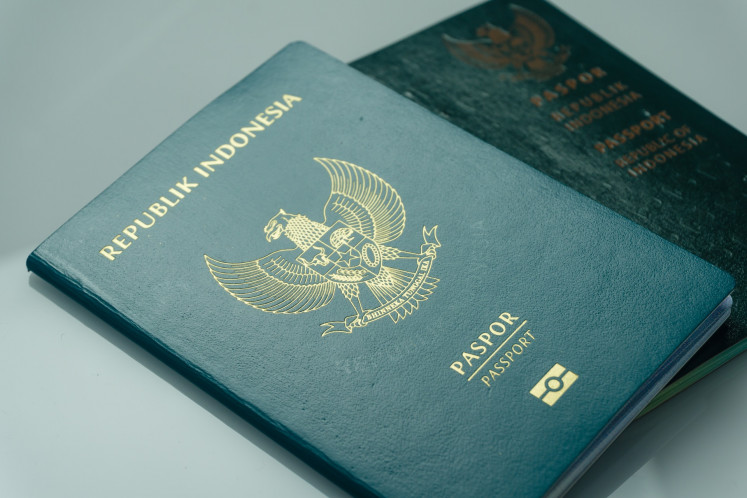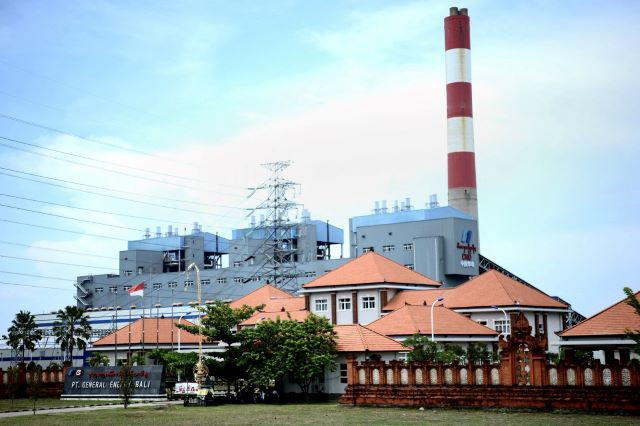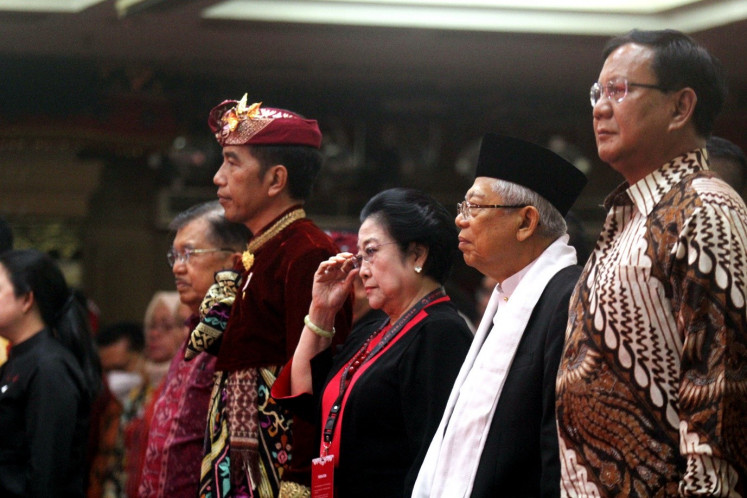First batch of Sudan evacuees arrive in Jakarta
Change Size

I
ndonesian citizens who were evacuated on the first of three repatriation waves have arrived in Jakarta, the Foreign Ministry said on Friday, the evacuation is expected to be finished on Sunday.
The 385 evacuees will be temporarily housed in East Jakarta’s Pondok Gede pilgrimage hostel to rest after their long journey, it added, before being sent home to their respective regions by the Social Affairs Ministry and the Home Ministry.
“As previously stated, the repatriation of evacuees from Sudan to Indonesia will be performed in batches,” said Foreign Minister Retno LP Marsudi on Friday.
“According to our plans, the second batch will begin on April 29 [...] and the third batch, which will also conclude the entire evacuation process, will be carried out on April 30 using Air Force aircraft.”
Medical check-ups and counseling services would also be made available for the evacuees once they reached Jakarta, she explained.
Last week the Foreign Ministry began the repatriation process to evacuate the 937 Indonesian nationals who were present in Sudan when violence broke out between the country’s military and a group known as the Rapid Support Forces (RSF) on April 15.
The evacuation team, composed of Indonesian envoys from Khartoum, Riyadh, Jeddah, Cairo and Addis Ababa, as well as the Indonesian Military (TNI) and Foreign Ministry staffers, have since then been repatriating the citizens in a “relay format”. This means firstly transporting the citizens away from Sudan’s capital Khartoum to Port Sudan, then stopping off at Saudi Arabia’s Jeddah before finally flying on to Indonesia.
As of Friday, only 111 Indonesian citizens still remained in Port Sudan, while the remaining 401 have safely arrived in Jeddah. The Foreign Ministry said it was also repatriating six Australian nationals.
“Alhamdulillah [thank God] the evacuation process has run so smoothly that we can also help out some foreigners during our mission. [...] This could only happen because we have collaborated with many different actors [this past week],” Retno added.
Other than the TNI, the Foreign Ministry has been working closely with at least five different ministries, namely the Coordinating Human Development and Culture Ministry, Social Affairs Ministry, Religious Affairs Ministry, Transportation Ministry and the Home Ministry.
The two-week long conflict in Sudan has plunged the African country into a crisis, as dozens of countries across the world rush to evacuate their citizens amid unabating airstrikes. On Tuesday, the United States after some “intense negotiations” brokered a 72-hour long ceasefire, meant to facilitate the evacuation process, though reports of fresh attacks were still rife.
On Friday, with hundreds of foreign nationals still stuck in Sudan, US Secretary of State Anthony Blinken announced that the truce had been extended by another 72 hours.
“In unison with international and regional partners, we urge the parties to commit to end the fighting and ensure impeded humanitarian access,” Blinken wrote on his official Twitter account.
As the situation in Sudan deteriorates, hundreds have been killed in the past weeks as basic needs such as food and potable water have become increasingly rare.
An Islamic study hub
Most of the Indonesian nationals living in Sudan are students, according to data from the embassy in Khartoum.
Analysts told The Jakarta Post on Friday that most of the foreign student population residing in Sudan were there to study Islam, as the country has risen in popularity for the subject over the past two decades.
Despite being geographically close to other Islamic study epicenters such as Egypt and Saudi Arabia, Sudan offers distinctive aspects, such as a better grasp of the Arabic language compared with Egypt and a much more streamlined curriculum.
“Over the past 20 years, Sudan has started giving out rather generous scholarship offers for foreigners, and they have also established some very popular Islamic universities,” said Yon Machmudi, a scholar from the University of Indonesia’s Center for Middle East and Islamic Studies.
Quran memorization is also a very strong aspect of the African tradition, Yon said, which would translate into Sudan’s education system.
Historically, he added, many African countries have close affiliations with Sufi traditions, which would be an attractive point for Islamic communities in Indonesia.
“When Saudi Arabia banned Sufism, its traditions were transported to other places, mostly in Africa and Southeast Asia. To this day, these practices are still widely learned in these places. Thus, the Indonesian students would most likely find many similarities in opinions and views when they study Islam in Sudan,” he said.









